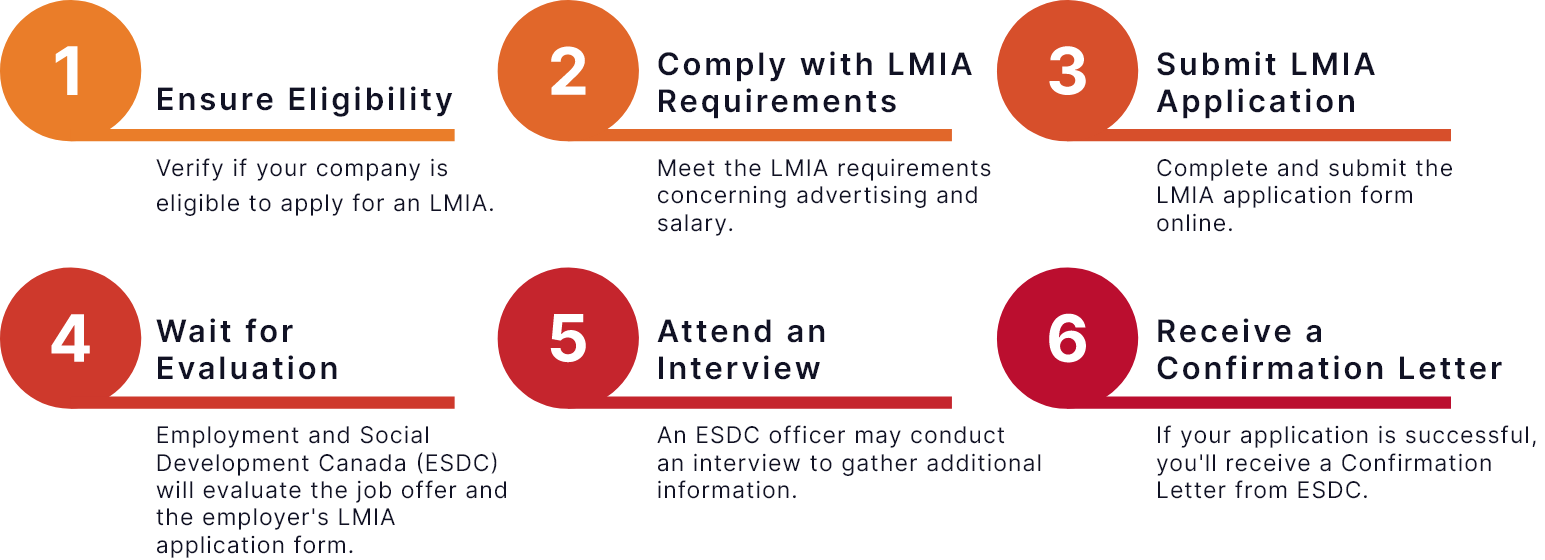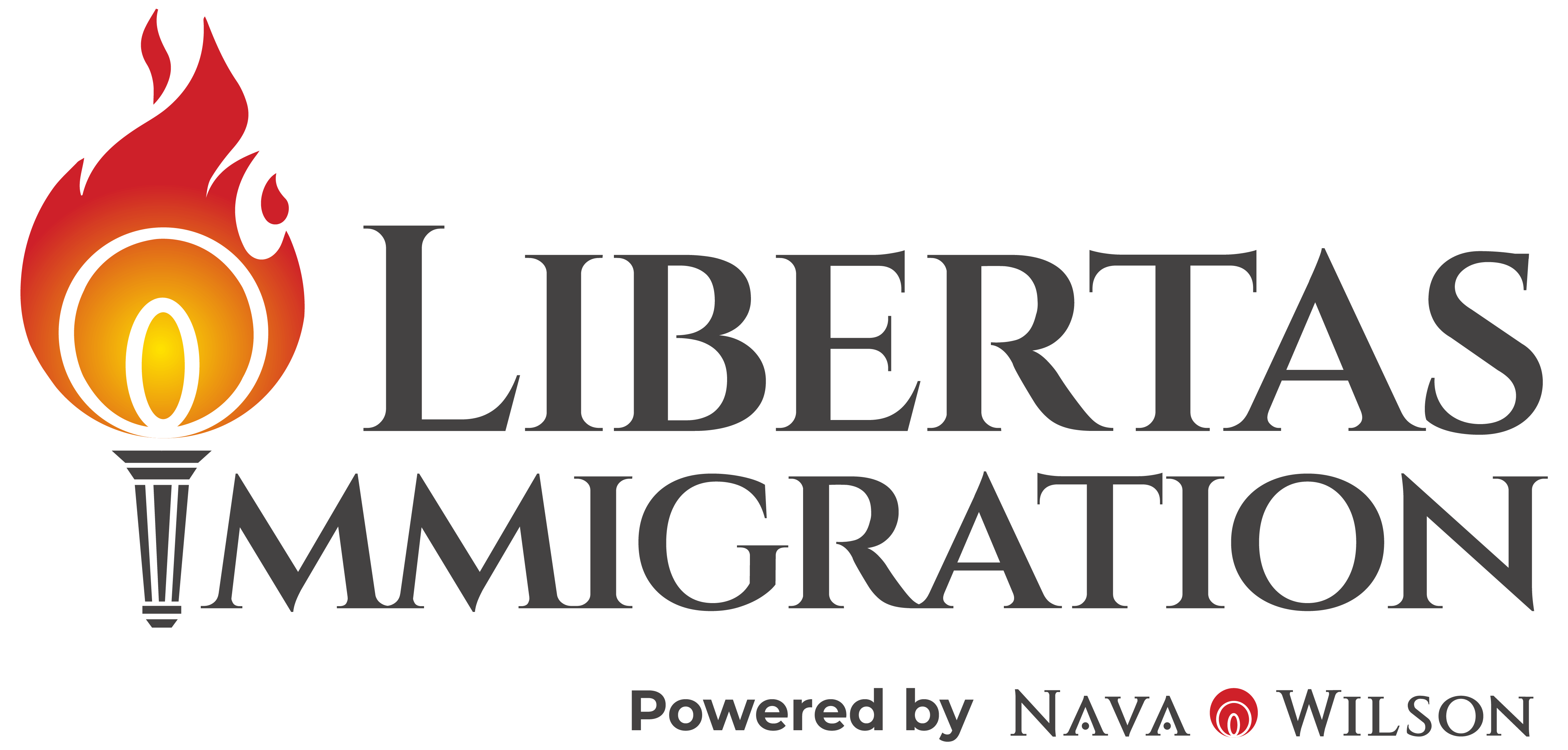Labour Market Impact Assesssment In Canada

Are you an employer in Canada seeking to hire foreign talent for your business or a foreign worker looking to work in Canada? The process of bringing international employees to Canada involves a Labour Market Impact Assessment (LMIA). Companies hiring through the Temporary Foreign Worker Program may first need to obtain approval from the Government to employ international talent.
What is Labour Market Impact Assessment (LMIA)?
Not all employers hiring foreign workers require an LMIA. You may be exempt if the job falls under specific programs like the Global Talent Stream or Intra-Company Transfer. Otherwise, if your job offer falls within the LMIA framework, you’ll need to proceed with the application process.

LMIA Application Process: Step by Step

After obtaining the LMIA, the foreign worker will need to apply for a work visa and work permit to start working in Canada.
After LMIA is approved, the next step is up to the employee. LMIA and the receipt of the Confirmation Letter are only one small part of a foreign worker’s successful employment in Canada. The worker will also have to apply for a work visa (if from a visa country) and obtain a work permit at a Canadian border, and will need:
- A job offer letter;
- A fully signed employment contract;
- A copy of the LMIA;
- The LMIA number.
Employer Requirements for LMIA
LMIA requirements are extensive and can be hard to meet. If you are a Canadian employer that wants to hire foreign nationals that do not have a right to work in Canada – you will need to receive an LMIA approval. Below are the three most important requirements:
- The first requirement for all employers is to show evidence that they have attempted to search for qualified domestic workers who are Canadian citizens or permanent residents. You have no choice but to hire foreign workers because you cannot find suitable talent;
- The second requirement depends on whether you plan to hire a high-wage or a low-wage employee. If you plan on paying your foreign worker above the province’s median wage, then they will be classed as high-wage for LMIA purposes. If they are paid below the median wage in your province, they will be classified as low-wage workers,
- The third requirement entails an inspection for compliance with regulations and reporting on the Transition Plan’s progress → this particular requirement is only applicable to employers who plan on hiring for high-wage positions.
LMIA Eligibility and Requirements
ESDC considers various factors to determine an employer’s eligibility to employ a foreign worker:
- Is there a labour shortage that cannot be filled with Canadian residents in the region?
- Has the employer made adequate efforts to offer the position to a local Canadian employee?
- Are the working conditions compliant with municipal, provincial, and federal regulations?
- Does the salary offer align with the average salary for the position in the geographical area?
- Will the foreign worker be able to perform the employment duties and share their expertise and knowledge with Canadians?
- Is the employer involved in any ongoing employment dispute?
ESDC adjusts its assessment based on the type of work and worker the employer intends to hire.
Expedited LMIA Application
Employers may be eligible for an expedited LMIA application if the worker falls under certain categories:
- Skilled Trades/Professions in High Demand – if your foreign worker falls under the outline list of occupations and you plan on paying them more than the median wage in the province, then you may be eligible for an expedited LMIA.
- Top 10% Wage Earners – if your foreign worker is paid at or above the top 10% of wages earned in the provinces, you may also be eligible for an expedited LMIA
- Short Duration – if your foreign worker is only employed for under 120 days and paid above the median wage in your province, then you may be eligible for an expedited LMIA.

How Much Does LMIA Cost in 2023?
The LMIA application fee is $1,000 CAD per employee, and the employer is responsible for the application fees and associated legal service costs. Additionally, the employer may need to cover the work permit application fees, depending on the arrangement with the foreign worker.
LMIA Advertising Requirements
To hire a temporary foreign worker, employers must demonstrate that they have made considerable efforts to recruit domestic workers. This includes advertising the position for at least 4 weeks on the Government of Canada’s Job Bank website and using additional recruitment methods targeting an appropriate audience.
One of the methods used must be national in scope and easily accessed by residents of any province or territory, as people in high-wage positions are often mobile and willing to relocate for work. Employers must advertise the position to underrepresented groups like Indigenous persons, vulnerable youth, newcomers, and persons with disabilities.
LMIA Exemption
Not all employers need LMIA approval to hire temporary foreign workers. The government of Canada has created LMIA exemption codes through the International Mobility Program, which includes:
- Countries with Free Trade Agreements
- Global Talent Stream
- CUSMA (formerly known as NAFTA) Countries
- CETA Countries
- Intra-Company Transfer Program
- Facilitated LMIA for Quebec Employers
3 Reasons for LMIA Rejection
There are numerous reasons why LMIA applications can be rejected. Below we have compiled a list of 3 common reasons for LMIA rejections:
If you did not demonstrate evidence of the genuine need for a foreign worker to fill your open job, then you could be rejected. You have to make a significant effort to recruit and hire Canadians first before looking for options abroad.
If you are regularly found to be in breach of labour laws and regulations, your LMIA application could be rejected. A history of non-compliance can be demonstrated by failing to pay fair wages, providing a safe working environment, upholding the rights of employees, etc.
Any misrepresentation in your LMIA application can lead to rejection. Statements that mislead ESDC officers as to the true facts of the employer’s information can be false job descriptions, fake salaries, or false recruitment efforts. Anything that could undermine the integrity of the LMIA process is likely to lead to rejection.
Our Process

Featured Insights
Frequently Asked Questions
An LMIA is a Labour Market Impact Assessment conducted by the Canadian government to analyze the impact of hiring a foreign worker on the domestic labour market. It’s required for employers seeking to hire foreign talent through the Temporary Foreign Worker Program.
The processing time for an LMIA application varies depending on the case and the region. It can take anywhere from a few weeks to several months. It’s advisable to apply well in advance to ensure timely approval.
Employers must demonstrate that they have attempted to recruit Canadian citizens or permanent residents for the position and have met the LMIA advertising and salary requirements. Additionally, employers must be compliant with labour laws and standards.
Yes, an LMIA application can be rejected for various reasons, including lack of genuine need for a foreign worker, non-compliance with labour laws, and misrepresentation of information in the application.
LMIA approval itself does not lead to permanent residence. However, it can be a significant step for a foreign worker to transition to permanent residence through other pathways, such as the Express Entry system.



